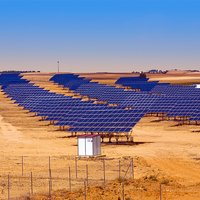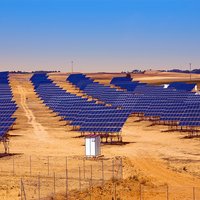Application of the Energy Transition Phase Model in Algeria
Algeria country study published

Algeria country study published

The Middle East and North Africa (MENA) plays a central role in the global energy transition, as the region holds a rich potential for renewable energies. At the same time, many countries in the region are also important oil and gas producers. This also applies to Algeria, where, oil and gas production play an important role in the economy and society. Against this background, the study "Sustainable transformation of Algeria's energy system" by Sibel Raquel Ersoy and Dr. Julia C. Terrapon-Pfaff from the International Energy Transitions Research Unit at the Wuppertal Institute, prepared in cooperation with the Friedrich Ebert Foundation and a local research team, analyses the transformation process towards a renewable-based energy system in Algeria.
The analysis builds on the phase model for the energy transition in the MENA countries, which was developed by the Wuppertal Institute. The model structures the complex transformation process through a series of successive phases, and aims to provide a foundation for developing strategies for a transition to a renewable energy-based energy system in the MENA countries. The analysis shows that Algeria has already taken first steps towards the energy transition. According to this, Algeria can be classified as being in the first phase ("Take-Off Renewables") of the energy transformation model. However, as fossil fuels still play a dominant role in the Algerian energy sector and in the economy as a whole. Necessary framework conditions for renewable energy need to be created to encourage private sector participation and to attract investment, the scientists emphasise. The results of the analysis along the phase model are intended to stimulate and support the discussion on Algeria's future energy system by providing an overarching guiding vision for the energy transition and thus supporting the development of consistent policy strategies.
The study is online accessible in English, French and Arabic on the website of the Friedrich-Ebert-Stiftung under the link below.
Further information
Links
- FES study: Sustainable transformation of Algeria's energy system
- EnergyTransMod MENA - Application of the Energy Transition Phase Model in Selected Countries in the MENA Region
- Phase Model MENA - Development of a Phase Model for Categorizing and Supporting the Sustainable Transformation of Energy Systems in the MENA Region
